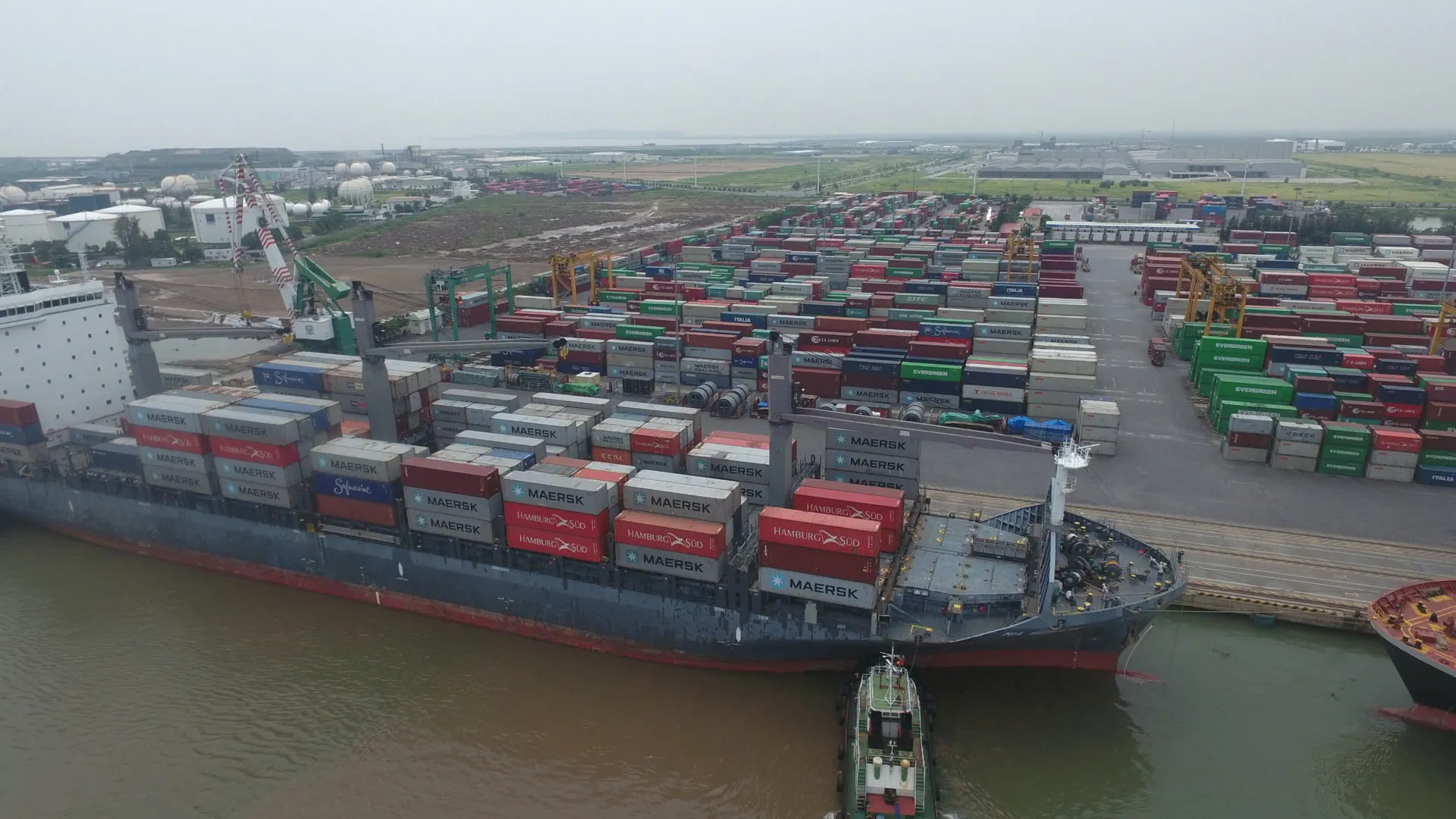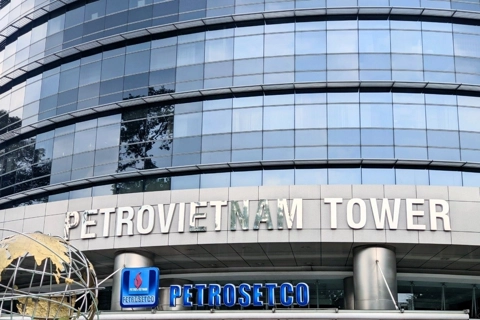Prime Minister orders finance ministry to draft stimulus package soon
The Prime Minister emphasizes the importance of creating incentives and stimulus packages to boost the economy in 2025, and explore other markets to avoid single-market dependence.
THE HANOI TIMES — Prime Minister Pham Minh Chinh has assigned the Ministry of Finance to draw up a consumer stimulus package soon, focusing on construction materials, and submit it to him by April 15.

Containers loaded for export at Dinh Vu Port, Haiphong. Photo: Pham Hung/The Hanoi Times
The directive was issued during the regular monthly government meeting on April 6.
The Prime Minister also urged the Ministry of Finance to finalize a draft resolution for the National Assembly on the establishment of regional and international financial centers, as well as to develop legal frameworks for digital assets, digital currencies, and a national investment fund.
The ministry is also tasked with speeding up the disbursement of public investment capital, reviewing and reallocating funds to projects that are in good progress but need additional capital, and resolving bottlenecks, Chinh said.
He also urged the ministry to focus on attracting large-scale, high-tech foreign direct investment (FDI) projects by removing obstacles for them.
"The Ministry of Finance must quickly prepare detailed growth scenarios for the second quarter and the rest of 2025," the Prime Minister added.
He stressed the need for stronger revenue management, especially from e-commerce and food services, and tighter control over regular spending to focus resources on development investments.
To maintain macroeconomic stability, control inflation, and ensure the country's key economic balances, the Prime Minister asked the State Bank of Vietnam to manage monetary policy in a proactive, flexible, and timely manner.
He urged effective coordination with a reasonably expansionary fiscal policy that is focused and targeted.
He called for keeping credit growth at around 16% this year, with priority given to key sectors, agricultural exports and financing national infrastructure projects.
The banking sector should reduce operating costs, lower lending rates and manage exchange rates flexibly, he said.
The Prime Minister also urged ministries, agencies, and local authorities to resolutely tackle long-standing project delays and eliminate waste.
Regarding exports, he instructed the Ministry of Industry and Trade to diversify markets, products and supply chains, and to propose specific measures to stimulate consumption. The ministry is expected to report by April 15.
Other key tasks highlighted included expanding visa exemptions for selected countries and groups, making breakthroughs in science, technology, innovation, and digital transformation, and developing free trade and economic zones in Danang and Van Don (Quang Ninh).
The Prime Minister stressed the need to complete 3,000 kilometers of expressways by 2025 and resolve all remaining issues related to the VND10 trillion ($387.6 million) flood control project in Ho Chi Minh City by the end of the second quarter.
He also called for more attention to be paid to culture, society, environmental protection, disaster prevention, climate change response, and preparations for upcoming national holidays.
Reports at the meeting showed that Vietnam posted the highest first quarter economic growth since 2020. The GDP rose by 6.93% compared to the same period last year with agriculture growing by 3.74%, industry and construction by 7.42%, and services by 7.70%.
Subnational cities such as Hanoi, Haiphong, Danang, and Ho Chi Minh City and Hanoi maintained their robust growth rates between 7.35% and 11.36% in the first quarter. Nine provinces achieved double-digit growth, including Bac Giang, Hoa Binh, Nam Dinh, Lai Chau and Ha Nam (10.54%).
In March, the Consumer Price Index (CPI) decreased by 0.03% compared to February. The average CPI for the first quarter increased by 3.22%. Vietnam's trade in March increased by 17% year-on-year to US$75 billion, while the trade value in the first quarter grew by 14% compared to the same period last year to US$202 billion.
State budget revenue in Q1 was up 29% on-year to VND721 trillion ($27.6 billion), meeting 36.7% of the year’s plan. Public debt, government debt, foreign debt, and budget deficit were all kept well below the permissible thresholds.
FDI inflows reached nearly $11 billion in Q1, up 35% on-year. Actual FDI disbursement reached nearly $5 billion in Q1, the highest in five years.
Retail and services sales rose 10.8% in March and 9.9% for the first quarter. International tourist arrivals reached nearly 2.1 million in March, up 28.5%, and more than six million for the period, up 29.6%.












